Nothing is Private Anymore; Should it Be?
Our laws and social norms have not caught up to modern life.
Anil Dash thoughtfully considers ”What Is Public?”
It’s an issue we’ve considered in this space before but Dash argues that the combination of vastly more once-private information being publicly available and the rise of a media ethic that treats all that information as fair game is more troublesome than most of us realize. As he rightly notes, “Everything from harassment laws to copyright battles to judicial decisions around privacy are all grounded in pre-Internet criteria of what constitutes public behavior or a public person.”
He gives several examples, such as:
If an addiction recovery group decided to take advantage of the summer weather by meeting in a park across the street instead of their usual church basement, you could record the entire conversation and post it, along with photos of the group’s members, on the Internet in real time. You could tag it with the names of their employers, friends and family members, to make sure no one missed it. Conversations that take place in public parks are public.
A decade or so ago, these people would have been taking a modest risk. Someone might overhear private details of their life but, unless that person happened to know them, it probably didn’t much matter. Few people walked around with cameras and recording devices and even those who did had limited ability to disseminate that information in a harmful way. Now, of course, almost all of us carry around high quality video cameras everywhere we go and can upload videos to any number of social networks (YouTube, Facebook, Twitter, etc.) in near real time.
Dash argues that even information that people deliberately post on social networks ought to be considered semi-private.
[I]nside these newsrooms, there is no apparent debate over whether it’s any different to embed a tweet from the President of the United States or from a vulnerable young activist who might not have anticipated her words being attached to her real identity, where she can be targeted by anonymous harassers.
What if the public speech on Facebook and Twitter is more akin to a conversation happening between two people at a restaurant? Or two people speaking quietly at home, albeit near a window that happens to be open to the street? And if more than a billion people are active on various social networking applications each week, are we saying that there are now a billion public figures? When did we agree to let media redefine everyone who uses social networks as fair game, with no recourse and no framework for consent?
As a matter of practicality, yes.
Now, I happen to think there ought to be some expectation of privacy on social networks. If someone I follow on Twitter sends me a direct message, I consider that just as private as an email. Likewise, if someone shares something on their Facebook wall to their friends, I consider that just as private as if they’d told me the same thing at a dinner party. Conversely, if you post it on open Twitter or share it with the general public on Facebook, I consider that just as public as if you’d published it as an op-ed in the New York Times.
Dash would go much further:
The conventional wisdom is “Don’t publish anything on social media that you wouldn’t want to see on the front page of the newspaper.” But this is an absurd and impossible standard. The same tools are being used for person-to-person conversations and for making grand pronouncements to the world, often by the same person at different times. Would we say “Don’t write anything in a sealed letter that you don’t want to see on the front page of the newspaper” simply because the technology exists to read that letter without opening it?
I consider the analogy false. A sealed letter is intended only for the recipient; the fact that there are technologies that might violate that expectation of privacy doesn’t alter it. But something posted publicly on Twitter is simply public.
Most media outlets routinely take semi-public, gray-area conversations, and the information implicitly or explicitly revealed in them, and consider them to be fodder, with no need for approval from the creators of the messages. We see the exact same behavior happening from online harassers and activists, both of whom have a name for the act: doxxing.
The phenomenon of doxxing (revealing personal information about a person online) has made clear that public information exists in a context of power and consent, and we must construct our ethics in that context. We can’t do that if we are still pretending that taking information that was merely available and instead making it easily accessible is an act without any moral or ethical consequences.
Here, again, I see a false equivalency. I live an unusually public life and have done so at least since starting this blog in January 2003. By posting so much under my real name, I’ve deliberately created a vast “paper” trail. The things I write at OTB, post on Twitter, broadcast on Facebook, and so forth are fair game for public commentary.
Conversely, there’s a lot of information about all of us that’s technically on the public record that could potentially be damaging or at least embarrassing if aggregated and published. There should be professional, social, and even legal norms limiting the dissemination of that sort of information. I view that as completely different than deliberately going public and social media.
Now, Dash is right when he notes that changing terms of service and technical issues sometimes make it hard to know when you’re sharing information with the public vice a limited set of invited “friends.” And that massive amounts of truly private information is owned by companies like Google and Facebook that could be damaging if made public. I agree that our legal and social norms ought to be updated to reflect these realities.
Dash offers a good example:
Many smartphone users don’t realize that the photos they take often include the user’s geographic location hidden in the image. A regular user of a smartphone photo-sharing app who thinks she’s merely revealing her fondness for latte art may not realize that she’s providing a clear map of her exact location, stamped with the date and time accurate down to the second. By the standards of contemporary tech and media companies, displaying this information to the world in the form of “Here is a map showing where this person is every Tuesday at 9am ” is a perfectly acceptable thing to publish about hundreds of millions of people, without their consent, because these companies consider this information public.
I think it’s perfectly acceptable to spread a photograph sent on public-facing social media by a non-public figure, whether by retweeting it or whatever the equivalent would be on Tumblr or Instagram. For the most part, I’d consider it fair game for posting here and commenting on. And yet I agree with Dash that exploiting technically public but unintentionally revealed information is unethical.
Dash and I are mostly in agreement on this, too:
Ultimately, we rely on a set of unspoken social agreements to make it possible to live in public and semi-public spaces. If we vent about our bosses to a friend at a coffee shop, we’re trusting that no one will run in with a camera crew and put that conversation on national TV.
And similarly, in a personal dialogue with friends online, any of us might throw in a hashtag to gather our thoughts or indicate that there’s a larger context to an issue being discussed. But as we’ve seen with moments such as #yesallwomen, what starts as a conversation between friends or within a community can grow to be both expanded and exploited without the consent of its creator.
When people, especially those in marginalized communities, have conversations with one another online, the fact that it’s possible to view those conversations might make them “public” by some definition. But certainly we can’t concede that every utterance we make in the presence of others is automatically fodder for aggregation and monetization by media and tech companies, without our consent or even the opportunity for remuneration. But while the ethical issues of, for example, outing victims of sexual assault in a media story without their consent has been discussed, there are far less dramatic circumstances that should still be raising questions. In the rare cases when these issues are discussed, the framing predictably becomes about a definition of “private”, rather than what our obligations are around something that is public.
My conception of social media, notably Twitter, as inherently public comes from the way I use it. Initially, I joined Twitter entirely for the purpose of promoting and generating traffic for this blog. Over time, I actually came to see the social value of it—having conversations with people I’d never come into contact with, much as I do with the comment section here at OTB. But, for the most part, the people I converse with on Twitter are other public intellectuals—academics, think tankers, journalists, and the like.
Further, both my sense of what’s interesting and my sense of fair play are such that I treat statements on social media about matters of public policy, events in the news, and issues within a person’s field of expertise differently than I do random declarations about people’s daily lives. So, if a Georgetown professor known for making outrageous statements in public makes one on Twitter that I think genuinely represents her view on the matter, I think nothing of including that quote in a blog post or op-ed. Conversely, I treat someone grousing about an annoying colleague or “joking” about their need for a stiff drink to get them through the day the same way that I’d treat it if they’d told me that over cocktails after a work event.
And maybe that’s what Dash is getting at. Journalists and others should consider the spirit in which the “public” posting was intended before taking that information Really Public, especially when they’re dealing with people who aren’t otherwise public figures. Indeed, they used to do that even with very public figures, up to and including the president of the United States. It was understood that, even for people living very public lives, not every word out of their mouth was meant for public consumption—even if a reporter was right there to here it. That was especially the case for those granted intimate, continuous access, such as riding along with the candidate for days on end on the campaign bus.
So, practically speaking, we should understand that everything we say on social media is public and therefore be cautious. But, as members of a civilized society in which social media is now part of most of our realities, we should understand that not everything that gets said on social media was meant for The Public and therefore be thoughtful.
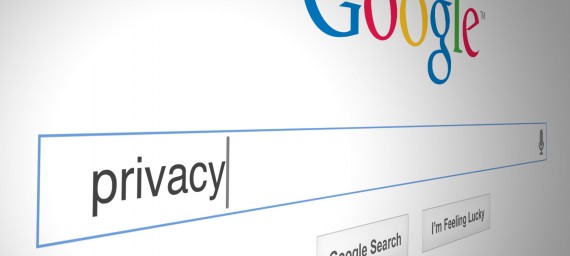

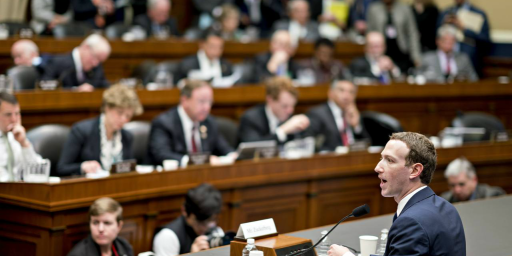

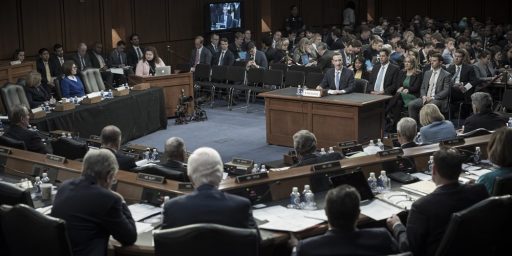
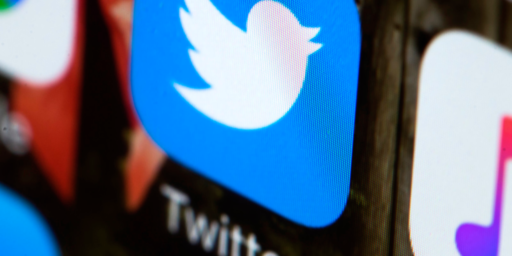
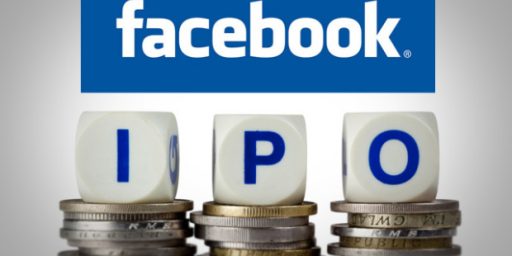
Once upon a time people differentiated between a person’s public and private lives and respected the boundary between them as part of the societal contract. Not anymore. Cliven Bundy is a racist. At one point in time such a rant as his probably never would have seen the light of media, but no more. Sandra Fluke is a slut. She, an otherwise private individual, testified before Congress about an issue she felt was important, and in return she was slandered by some on the right. Mitt Romney’s 47% speech would have remained blessedly private in a previous age. The examples are endless. In an age where people like James O’Keefe are lionized I have little hope for a return to a public/private separation.
The pretense of privacy ended post-9-11.
Snowden told people what everyone knew (but didn’t want to acknowledge, publicly).
Hell, I use a pseudonym when I post on this site… but based on IP addresses if someone really wanted to find me, they could.
Nearly everything I do during the day leaves an electronic record behind. Largest currency in circulation? $100 (try to do ANYTHING with the idea of a cash economy for a week… heck even ONE day. Can’t be done)
Ultimately, the question is: So what?
Possibly, the reality is that the world we live in can be summarized by paraphrasing the 2nd Amendment fanatics slogan:
A privacy-eliminated society is a polite society.
Sure: Reduction ad absurdum… no question.
But all of this, everything, keeps expanding to get more details about us… Everything we accept a statement from a company limiting their liability and defining our relationship with them… we give more away.
Corporations are information and privacy vampires, my friend, Of course they are.
@Liberal Capitalist:
Which I have always found at least as disturbing as anything Snowden revealed.
@OzarkHillbilly:
Just to clarify, I was leading this part of my comment with what became the dominant meme on the right just as I did with Bundy’s racism becoming the dominant meme on the left. I was not implying truth or falsity with the statement. First I wouldn’t know, second I wouldn’t care, and thirdly, what does her personal sex life have to do with contraception? Besides, most of the sluts I know are men.
Bad phrasing.
Frankly, the only things that can be made public on the Internet are things you put on the Internet. A thoughtful person realizes this.
If anything, we’re bemoaning the lack of unthoughtful people here.
@Tillman:
“Unthoughtful” is a kind way of putting it. The word “moronic” might be more apt in describing those who post videos of themselves committing crimes on their Facebook pages.
I like the idea of a certain delicacy, a reticence in what we reveal about others, and a degree of self-control about what we show.
But that said, privacy enables hypocrisy more than liberty.
In the “most things are private” society you can lord it over anyone caught transgressing, confident that you’ve covered your own tracks. This gives advantage to the least honest.
In a “most things are out there” society you can only diss your neighbor if your own slate is clean. Rather than conferring moral advantage on the biggest hypocrites it gives moral advantage to the genuinely virtuous – a tiny slice of the population.
I’d rather take my chances with the 5% who are genuinely virtuous than the 80% who are hypocrites.
@michael reynolds:
The advantage goes not to the virtuous, but to the conformist. If you are fortunate enough to be completely “normal”, you’re fine with no privacy. But if you’re anyway different from the lowest common denominator idea of what life is supposed to be, you’re now faced with a choice between a soul-crushing life of self denial as you try to be someone you’re not in order to blend in, or a constant risk of having your life destroyed by a mob of people who can’t tolerate even minor differences from themselves.
@Tillman: I guess that should be “bemoaning the abundance of unthoughtful people here.”
@CSK: Well, that’s just Darwin weeding out the slowest in the herd there.
@Stormy Dragon:
No one is normal. Everyone’s got a kink or two. And as things stand even the kinkiest can play holier-than-thou.
@Liberal Capitalist:
What kind of lifestyle are you living? I regularly go days using only cash and could without much effort go weeks with only rent, insurance, and utilities being paid with something other than cash. I generally don’t because the ATM card is so convenient, but it is certainly not impossible.
@michael reynolds:
Everyone interesting has something unusual about them. But there are hordes of incredibly tedious people out there who are completely “average” in every respect.
@michael reynolds: @Stormy Dragon: You both seem to be presuming everything out there in the digital society is necessarily true. Far as I can tell, social media hasn’t dampened the ability of people to lie or cheat or spread bullshit. It’ll sort itself out in a decade or so.
People always catch up in their collective understanding when new technologies roll around the corner. It just takes time. I mean, only a minority falls for the Nigerian prince scam anymore. The laws might take a while, and I imagine there’ll be some generational change before the laws reflect what most people want out of digital privacy, but that’s nothing different from before.
The anti-abortion/pro-life crowd has used the widespread dissemination of public information about individuals as a means of harassment, and ultimately targeting people for murder*.
I think we have gone too far down the path of all information being public, and need to start creating a basic set of privacy protections like the EU has.
*: There are crazy, violent people on the fringe of any organization, if you rile them up at a specific individual and give them enough information to find that individual, you can’t be surprised when they get killed.
Things weren’t so private years ago either. If any of you remember the old “party” line telephone system of long ago, you have been around a while. Back in the day many neighbors had to share the same phone line, so you would pick up to dial and someone down the street or next door would be on there talking away. When I was a young chap, we would get our kicks out of listening in to everyone’s conversations (usually when our parents went out shopping or to eat. Back then parents could leave their kids at home alone for a while). So sometimes it was a neighbor talking to some woman while his wife was gone, or some teen girl talking to her boyfriend. On Sundays the lines were especially busy because when people got home from church there was a ton of gossip about who wore what or what couple was having marital troubles. Evidently they did not pay much attention to the sermons about gossip. We had a phone that had a light that would come on if the line was being used. We would pick up and cover the mouthpiece so they would not hear us. We also loved to make joke phone calls because there was no such thing then as caller id.
Back then in warm weather people would raise their windows and shades at night (no ac in houses). We would sneak our father’s binoculars out and really see all kinds of interesting activity.
So things weren’t as private as some would think. But a lot of fun!
Maybe it’s because I come from a background of spending 20 years in military cryptology, combined with a (now-ex) wife who had no concept of private statements, I’ve learned to regard everything I write (or often, say) as being publicized to the world. If there are things I don’t want (any) people to know, I certainly never type them into the Internet. I may write them on paper, but I certainly wouldn’t introduce them to the electronic stream of my life.
Of if I do, I assume the risk that comes from doing so. If you’re going to talk on the Internet, you’re a fool if you expect it to remain secret.
@Boyd: Secret? No. But that’s different from Public in the way Dash is talking about.
When I write something on Twitter, I presume that my boss, colleagues, and students can see it and act accordingly. And, given that I’m a minor league public intellectual, I assume it’s fair game for quoting on others’ blogs and the like. But I’m not sure some random person who uses Twitter to chat with their friends in a semi-public dialog should expect to see their words used as a basis for a story on BuzzFeed.
@James Joyner: I disagree. I think the internet is a truly remarkable invention, but by it’s very nature it’s a public venue. Of course anyone posting anything needs to realize that their words may be around for a long time in various forms or linked to from other sites. That’s pretty much the definition of what the www is. You have to do some work to ensure a semi-public or private venue.
Now, have we shown that people don’t fully think out the consequences of their actions? Yes, again.
@James Joyner: If you write something that’s published on the Internet, you’re a fool if you treat it in any way other than broadcasting it on the evening news (at least the version of the evening news of my youth).
I have children and grandchildren, bosses, friends. colleagues, middle and high school kids I teach in Sunday School and my pastor, who are all active on the Internet. I try to write such that I won’t be ashamed for any of them to read what I’ve written. I usually succeed (but not always).
@Boyd: I’m with you and that’s my practice as well.
But here’s the thing. We’re both rather avid users of the Internet but grew into adulthood without it. As such, it feels like broadcasting to us and is in any event a conscious act. For those under 30, Twitter, Facebook, Tumblr, and all the rest are just an organic part of their social structure. They’re vaguely aware their parents, teachers, and others could see what’s out there but treat it as would would have seen the risk of our conversations at a coffee shop being overheard.
Additionally, Dash alludes to the issue of “marginalized communities.” These forums provide a way for people to have conversations with others of their group in ways they couldn’t have previously. He uses the example of rape victims but it’s easy to think of others. The way Twitter and Facebook, the only ones I use with any regularity, are structured, it’s easy to have essentially private conversations. But, with Twitter especially, those conversations are searchable and suddenly visible for someone looking for those keywords. That one of your friends might go through that much trouble is a low level risk. That some “reporter” at Buzzfeed looking to create a sensationalistic story might, however, is one that the participants can’t reasonably have anticipated.
I don’t know that any of this calls for government action. I do think it’s worth rethinking our social norms.
@Boyd:
Yup, I grew up under the same circumstance. There was no privacy. In fact as a legal concept it was unknown before 1890 or so. And our forefathers had no idea. All you got to do is watch ‘Downton Abbey’ to realize there was no privacy if you had servants or slaves. And everybody else lived in 1-2 room cottages, and spent all their time talking about the neighbors kids, no privacy there either.
I know of a recent case where a city girl forced her husband to move back to the city from the home village because she was being driven nuts by everybody knowing her business. She preferred anonymity and could not find it in the village. Well, in the olde days, she would have found no refuge.